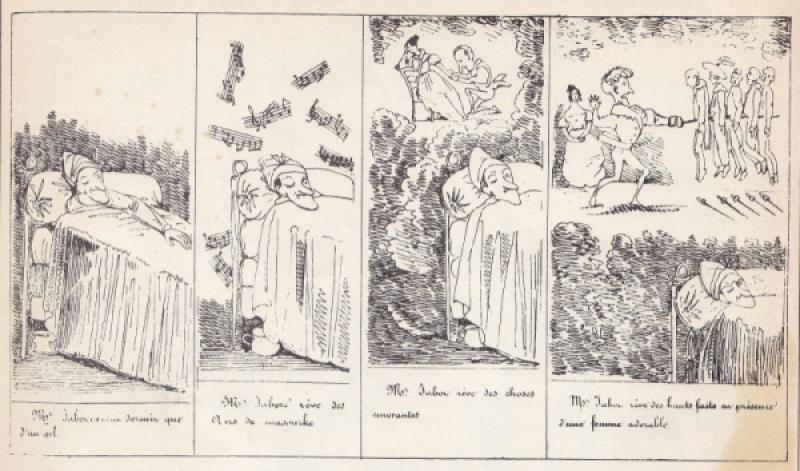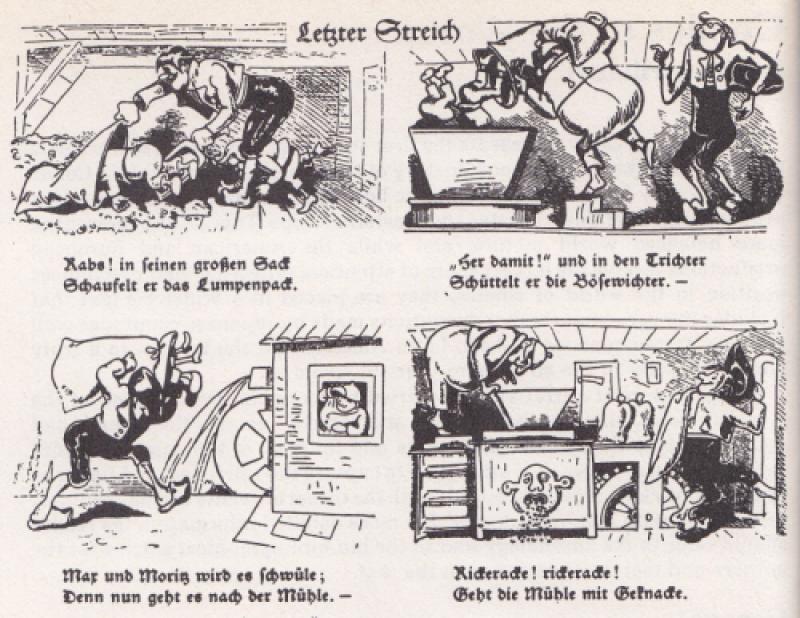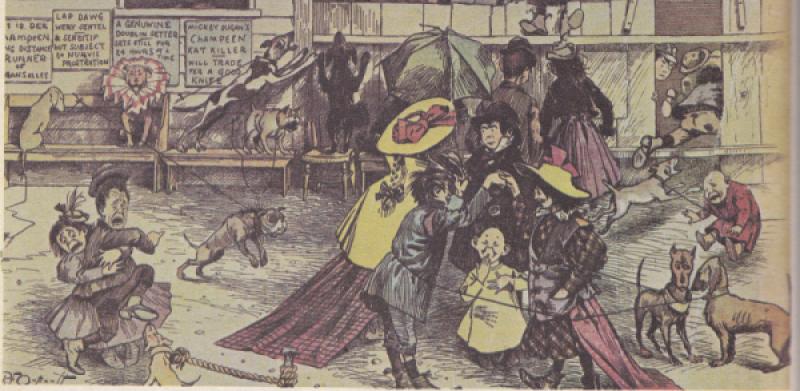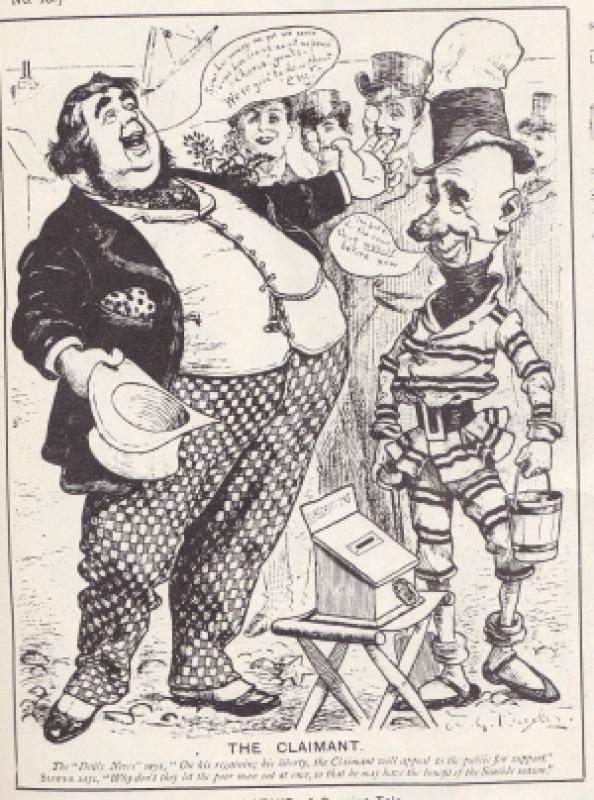An occasional series.
The first comic strip.
Comic strip definition - graphic medium in which sequential images convey a narrative. Often accompanied by text in either captions or speech balloons.
First work to conform to this description was by Rudolphe Topffer. A Swiss artist of the early 19th century who regarded his work as “invent(ing) some kind of play” The stories he created fail to conform to modern ideas about comic strips in only one regard - that there is no consistent character at their centre.
This was left to Wilhelm Busch who in 1865 created Max and Moritz for a German newspaper. The strip did not use speech balloons.
These were introduced in the USA in 1897 with Rudolph Dirk’s The Katzenjammer Kids which was inspired by (copied from?) Max and Moritz.
For some reason there is an impression given in some books on comic strips that either Ally Sloper in the UK or The Yellow Kid in the USA should be regarded as the first comic strips.
Ally Sloper, created 1884 by Charles H. Ross and developed by W.G Baxter, was scarcely a comic strip being the more often a single page cartoon, Same is true of America’s Yellow Kid 1895 -96 by R.F. Outcault.
This is in reference to Western comics, with the advent of mass printing technology there were also ‘comic strip’ things happening in China and Japan.
Sources -
The International Book of Comics. Denis Gifford, Hamlyn Publishing Group. 1984
Wikipedia - Comics
The Penguin Book of Comics, George Perry & Alan Aldridge. Penguin Books. Revised edition 1971.
Understanding Comics. The invisible art. Scott McCloud. Kitchen Sink Press 1993
The World Encyclopaedia of Comics. Edited by Maurice Horn. Chelsea House Publishers New York. 1976




